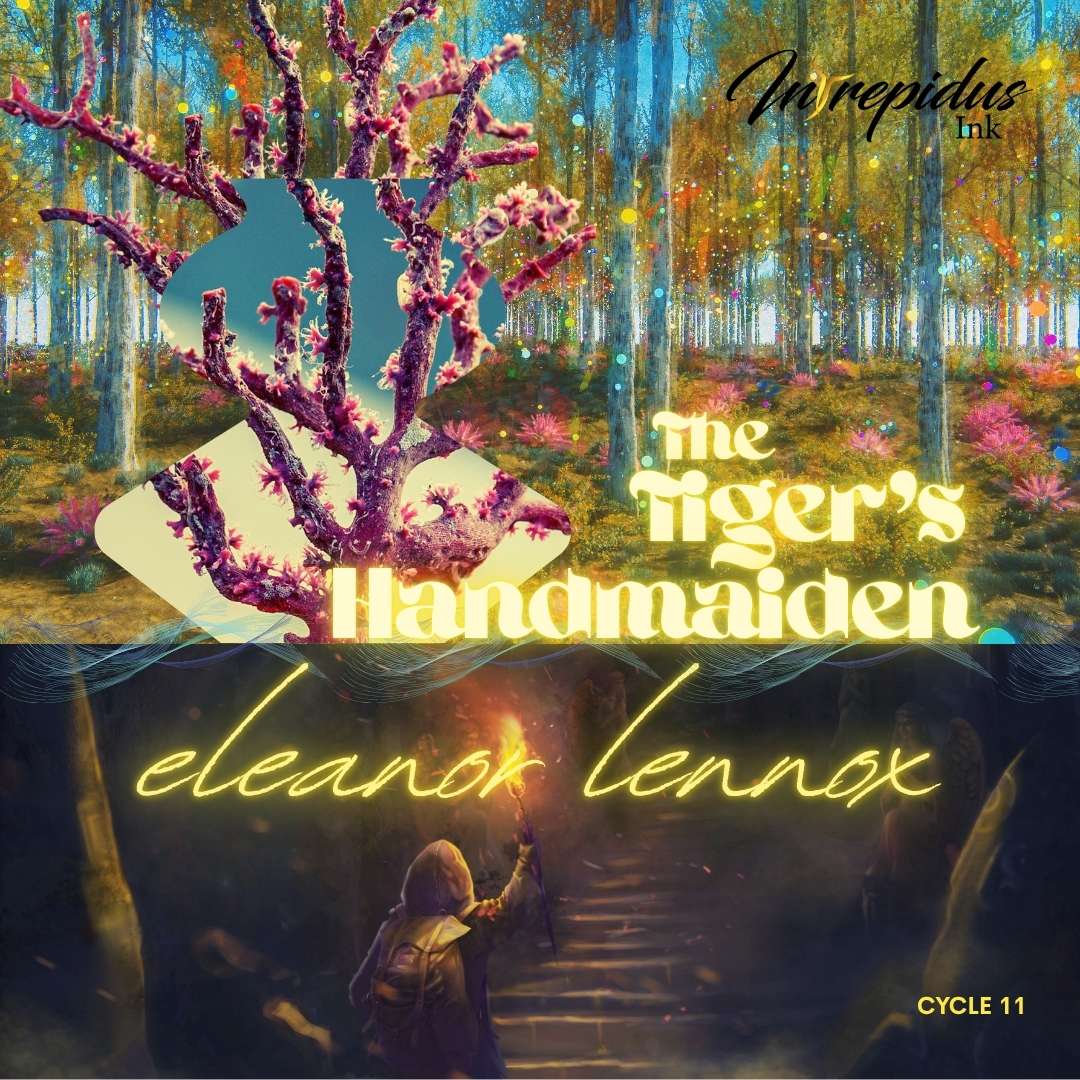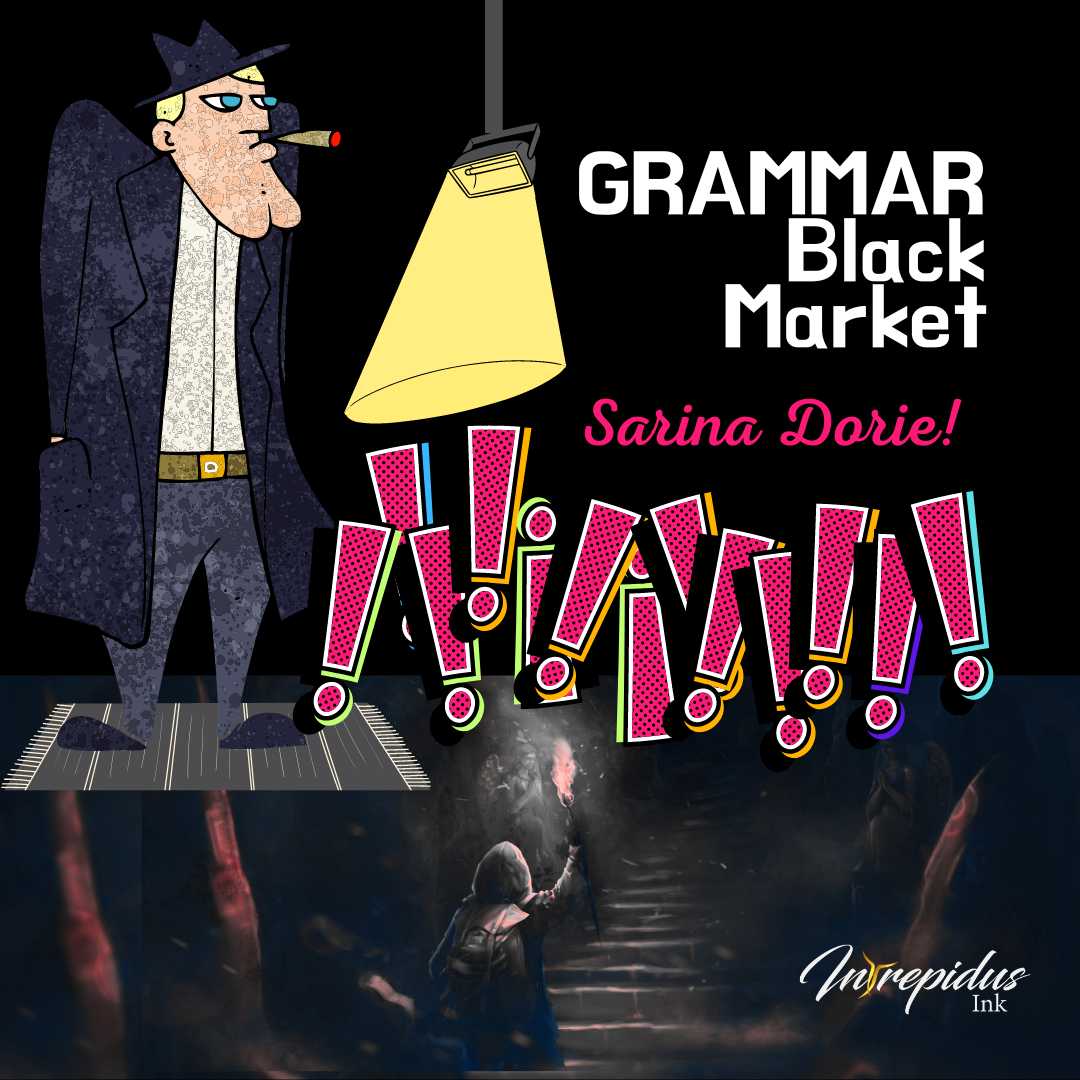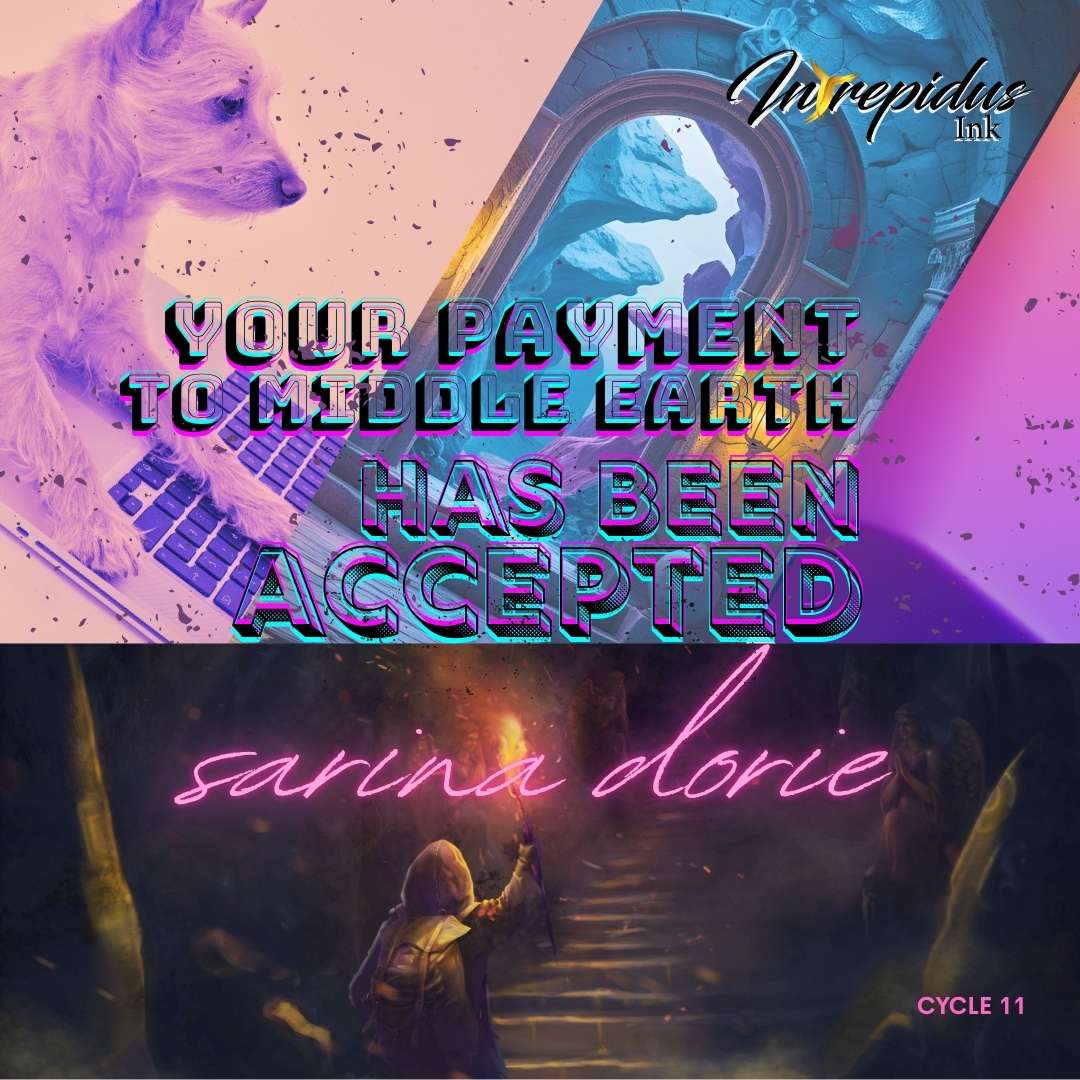

Speculative Fiction
O
ne day after writing a blogpost reviewing a movie, I was sent a cease and desist letter in the mail. It explained that I’d used too many exclamation points in a piece of “published writing” that I hadn’t paid for.
They included an address where I could pay for eight out of eleven exclamation points I’d used. The first three were free to use, they said, though I had to pay for the rest!
It had to be a joke. My identity as a movie blogger was anonymous, so it must have been a prank by one of my friends. I kept the letter because I found it so amusing.
A week later, another letter came. My most recent blog post used five exclamation points. The letter said I had to pay for two this week in addition to my previous blog post. The tone of the letter was disdainful and condescending.
I especially took insult at the line:
Though it is ill-advised to use an excessive number of exclamation points, if an author wants to shout at the top of their lungs for paragraphs at their readers, that is up to them. What we cannot ignore is that these exclamation marks are being poached from our market without restitution. Failure to pay your bill will result in legal action.
What was this? An exclamation mark inquisition?! This had to be a scam. I wasn’t going to be conned into paying for punctuation marks. It was my right to be able to use any kind of grammar I wanted!
I looked up the address of the letter. According to Google, it was a real address, and Exclamation Points R Us was a real business. It was even a few blocks away, though I had never heard of it. I decided it wasn’t worth the effort of pursuing and ignored it.
Another week passed before a knock came at the door. I answered, coming face to face with a man dressed in all black.
“Grammar police,” he announced, flashing a badge at me. “Are you Rodney Copperman?”
“Um…. Yes.” My gaze was riveted by the gun at his belt. “I haven’t ever heard of the grammar police.”
“It’s a division of drugs and vice. In this case, there aren’t any drugs involved, I trust?” He removed his sunglasses, eying me coolly. “I was only notified about the vice. You’ve been using an excessive number of exclamation points without paying for them.”
I had always struggled to control my grammar. I could now see that others saw this as a greater vice than I had realized.
Again, my eyes flickered to his gun. “I didn’t think that was real. Am I being arrested?”
“Being a first-time offender, I don’t need to bring you down to the station—if you pay your outstanding bills today. You can collect your wallet and the letters you received in the mail, and I’ll escort you down to the grammar market, where you can pay your fine.”
My instincts told me to slam the door in his face, but I didn’t think I could lock it before he could shoot me. Did the grammar police shoot people for closing doors in their faces?
His fingers danced over the edge of his handcuffs. “Do you want to do this the easy way or the hard way?”
I was a law-abiding citizen. I wasn’t the kind of person who evaded taxes, didn’t pay bills, or resisted arrest.
Yet if I went with him, I was probably going to wake up in a bathtub full of ice, missing a kidney.
“I want to verify your credentials,” I said.
“Go ahead. Call drugs and vice.” His smile was smug. “Their number is listed in the police station’s directory.”
I looked up the number on my phone and called. He crossed his arms, waiting. I was able to verify he wasn’t a con artist as I’d first thought.
I retrieved my letters and wallet before leaving with him. The market was a short walk from my home, two streets past the bus stop, around an apartment complex, and down an alley next to a minimart. As the officer opened a rusty door to what appeared to be a warehouse behind a laundromat, I dreaded what I’d gotten myself into.
But when I saw it, I gasped. There was a real grammar market!!! I stared in wonder.
Stalls of vendors were lined up. The first sign advertised a sale on semi-colons. Another sign announced hydroponic hyphens. A shady-looking man in a trench coat whispered something about comma splices and flashed some dangling participles at me when the grammar police officer wasn’t looking. I turned away, embarrassed by his lack of propriety.
We passed a vendor shouting, “Sentence fragments! Get them here. Only the best. Daily fresh!”
I stared in awe. Did I have to pay for sentence fragments if I went over the quota? I could see I needed to be careful. It wasn’t just exclamation points I was at risk of being fined for.
We passed more booths crammed into the interior of the building, some selling punctuation in other languages. A toothless old woman waved at me from a tent with a sign labeled The Conjunction Dungeon. I didn’t know what that was, but it sounded . . . naughty and dangerous. I was intrigued. Even more so by the tent with the sign: Lay Versus Lie Between the Sheets. There had to be some grammar prostitution going on.
Along the back wall was an actual shop. It reminded me of an old-fashioned grocery store with glass jars on shelves and a man in an apron behind an antique cash register. As I stepped closer, I noticed one of the jars filled with upside-down exclamation points. I considered how useful that would be to express an exclamation in Spanish. I could see myself writing: ¡Oh Dios mío!
I hungered for these tantalizing, upside-down exclamation marks.
“Keep moving. You can shop later.” The grammar officer nudged me forward.
I stumbled toward the cashier.
“I’ve got someone here to pay a bill,” the officer said.
I smoothed out the paper and paid with my credit card. When I turned to the officer, he was briskly marching away.
He held up his badge. “You, there! Do you have a license for that?” He shouldered his way past a woman smoking a pipe and disappeared into the crowd.
“He does that,” the cashier said. “He’s off to make another arrest, I expect. Probably that guy in the trench coat who’s been flashing customers all morning.”
The cashier was kind enough to explain the rules of grammar usage to me. “Handwritten notes usually fall through the cracks. Anything published, on the Internet, or items that could be made public, like in an email, need to be paid for.”
“Thank you. I mean–I’m sorry. I didn’t mean to use your, um, product without paying.” Heat flushed my cheeks as I considered how embarrassing this was. He probably assumed I was some kind of common thief.
Just because I used a few more exclamation points than my English teacher had advised didn’t make me a criminal deviant. I was suddenly aware that all my teachers over the years had failed to impress the importance of grammar on me. No one had warned me of the seriousness of such misuse.
Then again, I had played hooky a lot too. Perhaps I had missed that ever-important lesson in English classes.
The cashier nodded. “Feel free to look around before you go. You might decide you need more grammatical conventions before you’re on your way.”
He was right. I had never known such a place existed until now! I ended up purchasing a dozen exclamation marks. They were expensive. I could see why my English teacher had warned us against using too many. I didn’t have enough to buy as many as I wanted–and there were still so many more booths to explore.
This was like a Costco trip. I was stocking up. These exclamation marks had to last.
My eyes were riveted by a booth outside advertising exclamation marks combined with question marks. When would I even use such a combination?! Oh wait, I guess I totally could use those.
The cashier leaned forward as he bagged up my order. “There are vendors out there with other offerings. Some of them even have great deals, but not everything is the same quality we offer here. You never know what you’re going to get from a black-market vendor.”
Black market grammar?! (See, I knew I’d have an occasion to use that combo.) A little shiver of delight skated up my spine. All of this sounded so illicit and seductive.
I went to another booth that looked like it was selling normal grammar conventions.
“I know what you need.” The seller craned his neck as if searching for someone before uncovering a basket of exclamation points paired with ellipses. . . !
I suspected he was one of the black-market vendors the first cashier had warned me about.
Naturally, I purchased a few. I glanced over my shoulder, afraid the grammar police might tell me I was doing something illegal in making such purchases. Would I get arrested for this?
I found a sale on exclamation points paired inside parentheses (You never know when you might need one!), and the vendor threw in a few paired outside parentheses to try as a sample.
I recognized what he was doing, trying to get me hooked on his product. I would not allow myself to become addicted to illicit grammar.
I shopped for discounted items in tents that included exclamation marks paired with commas and semi-colons. It seemed unlikely I would ever use one, but I just couldn’t pass up the opportunity. I found the exclamation marks paired with hyphens to be almost as unlikely to be used—but you never know!—and these were priced even lower.
A man barked to my right, “Set those semi-colons down this instant!”
I dropped the semi-colon/exclamation point pairing into a jar, raising my hands. My heart thundered as I turned, afraid I had been caught by the grammar police again. Instead, it was the market vendor, but he wasn’t directing his animosity toward me. A woman stood frozen beside a display of semi-colons, her hand in her pocket. From the bulge of sickle-shaped imprints against the fabric, I knew what she’d stuffed inside.
I stepped back as the market vendor rushed past me to tackle the thief to the ground.
I couldn’t completely blame the shoplifter. Everything was so expensive. How could a blogger like myself survive on a small income when there was so much juicy grammar I couldn’t wait to get my hands on and use?
Seeing this shoplifter on the ground reminded me how serious they were about their grammar. I had to be careful. I paid for all my items and shopped for clearance grammar. It was all I could afford, but I hungered for more.
This was better than thrift store shopping! This indulgence in dirty grammar gave me a greater high than any drug I’d tried in my experimental college days. In the weeks that followed, I wrote my next blog posts, using high-quality grammar first, followed by lesser quality items, trying to find places where they would fit. When I ran out of plain exclamation marks, I was forced to use less savory pairings in the hope no one would notice!—Or readers would assume it was a typo;!
Exclamation points were expensive. Now that I’d started using them in so many unusual and untraditional ways, I didn’t want to stop. If I was going to avoid being arrested, I was going to have to find a way to support my habit.
Months later, the grammar policeman spotted me on my way home, a paper bag under my arm. He pointed to his eyes and then to me, indicating he was watching me. I hurried into my building and locked the door. I drew the shades before I opened the closet door to check on the upside-down exclamation marks sprouting under grow lights.
I had to support my habit of black-market grammar some way. I wasn’t just a user. I was now a dealer.
An Interview With Sarina Dorie
Intrepidus Ink: What inspired the “Grammar Black Market”?
Sarina Dorie: I love writing humor, surrealist stories that bend the laws of the universe, and stories poking fun at rules–like never using more than three exclamation points in a piece of writing! Which I will break! For effect!
II: You’re incredibly professional and highly published; what’s your advice on when to break the grammar rules?
SD: For any art form, it is important to know the rules and practice them correctly before breaking them. I have taught English classes in South Korea and Japan, worked as a copywriter and editor at an advertising agency, and written over 200 short stories. There is no way I could get away with misusing grammar rules if I didn’t have a handle on executing them correctly. Including an international typo in a story like I did with the “Grammar Black Market” was definitely risky–like so!;
II: Would you share what’s next in your writing life?
SD: I am just about to release a new series, The Secrets of the Forest Knight. In Sword of Glas and Steel, a merman impersonates a knight in order to bring justice to the kingdom.
Most of my books are contemporary urban fantasy, like my bestselling series Womby’s School for Wayward Witches. You think you know the world of magical boarding schools? Not from a teacher’s perspective at a school for at risk youth.
You can find my newsletter sign-up on my website: sarinadorie.com or go to https://sarinadorie.com/newsletter-sign-up.
II: Very best wishes, Sarina! We adore your work and thank you for sharing it with the world!!!
Author Bio

Sarina Dorie has sold over 200 short stories to markets like Analog, Daily Science Fiction, Fantasy Magazine, and F & SF. She has over ninety books up on Amazon, including her bestselling series, Womby’s School for Wayward Witches. You can find info about her short stories and novels on her website.

